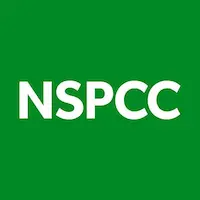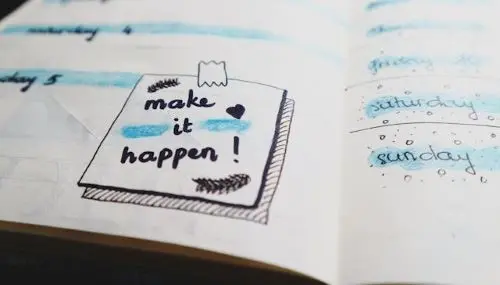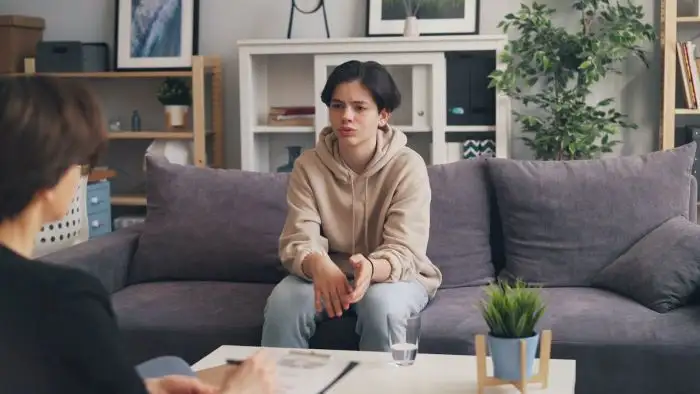Get Emergency Help

NHS 111
If you need help for a mental health crisis or emergency, you should get immediate expert advice and assessment.

Young Minds
Text SHOUT to 85258 to get urgent help from Young Minds.

NSPCC
Get in touch by calling 0808 800 5000, emailing or completing our report abuse online form.
Self-Help Activities
Try these self-help activities to manage anxiety and improve your well-being:

Stress Relief Exercises
Try these stress relief exercises to relax your mind and body
Let's Exercise



Deep Breathing Techniques
Learn deep breathing techniques to reduce anxiety and stress
Let's Breathe
For Parents and Friends: Tips for Talking to Your Teens
It's important to create an open and supportive environment for your teen to talk about their feelings and experiences. Here are some tips for talking to your teen about anxiety:
- Listen actively and without judgment to understand their feelings and concerns.
- Encourage open communication by creating a safe and supportive environment.
- Validate their emotions and reassure them that it's okay to feel anxious.
- Share your own experiences with anxiety to normalise their feelings.
- Offer practical strategies and resources to help them manage their anxiety.
For Teens: Tips for Educating Adults about Anxiety
If you're struggling with anxiety, it's important to communicate your needs and experiences to the adults in your life. Here are some tips for educating adults about anxiety:
- Be honest and open about your feelings and experiences with anxiety.
- Share information about anxiety and its symptoms to help them understand what you're going through.
- Ask for their support and understanding in managing your anxiety.
- Provide them with resources and information to learn more about anxiety and how to help you.
- Express your needs and preferences for managing anxiety, such as seeking professional help or using self-help strategies.

Online Resources
Online resources can provide valuable information, tools, and support for managing anxiety. Here are a few trusted websites and apps to explore:
- Young Minds - Offers information, advice, and support for young people experiencing mental health challenges.
- Childline - Provides free, confidential support and advice for children and young people.
- Anxiety UK - Offers support, information, and resources for individuals living with anxiety disorders.
- Headspace - Provides guided meditation and mindfulness exercises to reduce stress and improve well-being.
Apps
Mobile apps can be a convenient way to access mental health resources and tools on the go. Here are a few apps that can help you manage anxiety:
- Calm - Offers guided meditations, sleep stories, and relaxation exercises to reduce anxiety and improve sleep.
- Headspace - Provides mindfulness exercises, guided meditations, and sleep sounds to promote relaxation and well-being.
- Moodpath - Offers mental health assessments, mood tracking, and personalized exercises to support your emotional well-being.
Types of Professional Help
There are various types of professional help available for managing anxiety, each offering unique approaches and benefits:
CBT is a type of talk therapy that helps people understand and change their negative thoughts and behaviors.
It's a common treatment for anxiety and can help you develop coping strategies to manage anxious feelings.
School counsellors are mental health professionals who can provide support and guidance to students experiencing anxiety.
They can help you develop coping strategies, navigate school challenges, and connect you with additional resources if needed.
Family therapists work with families to improve communication, resolve conflicts, and strengthen relationships.
If anxiety is impacting your family dynamics, a family therapist can help you work together to address the issue and support each other.
Online therapy platforms offer convenient and accessible mental health support from licensed professionals.
You can connect with a therapist via video chat, phone call, or messaging to receive personalised treatment for anxiety.
Here are a few examples of online therapy platforms:
- BetterHelp - Offers online counseling with licensed therapists via video, phone, and messaging.
- Talkspace - Provides therapy sessions through text, audio, and video messaging with licensed therapists.
- 7 Cups - Offers free emotional support from trained listeners and affordable therapy with licensed professionals.
